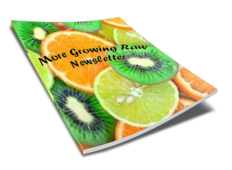|
Safe Use of Herbs
Please give careful attention to this important note of caution regarding the safe use of herbs. Check this list for herbs that are unsafe to give to children younger than twelve. Also be cautious using herbs for people suffering from asthma and allergies, pregnant women and people with thyroid problems. Pregnancy and herbsIf you are pregnant, it is advised that you not ingest any herb unless you have discussed at length with your obstetrician which herbs you wish to take and their possible effects on the baby and yourself. Even traditional culinary herbs such as celery or parsley, if taken in large amounts, can cause problems, so please be aware of how herbs can affect you when you are pregnant and consult your healthcare professional before using any herb. Herbs and thyroid problemsIf you have a thyroid problem, such as Hypo- or Hyper-thyroidism, be advised that certain herbs, many from the Mint family, may have a very negative effect on the thyroid gland itself. Some of their phytochemicals will also act on any medication you are taking for your problem by cancelling out the helpful benefits to your health. Having a Lemon Balm tea once a week will not have much noticeable effect, but ingesting a lot of the following herbs from the mint family, Oregano, Peppermint, and Rosemary, is not a good idea. Many of our common herbs belong to the Mint Family, Lamiaceae, but not all of them contain anti-thyroid chemicals. Moderation in ingesting the above herbs is strongly advised. Herbs and asthma & Herbs and allergiesIf you have asthma or allergies, please use extreme caution with herbs. Be alert to any new or strange effects you experience when coming in contact with herbs, and stop using them immediately if you suspect adverse reactions. These cautions cannot be stressed enough. Herbs and childrenIt is best to err on the side of caution as well when it comes to giving your child herbal remedies. Some seemingly-innocuous herbs like Chamomile (Matricaria recutita) can cause severe allergic reactions in children who have asthma or, conversely, who have never exhibited respiratory problems before. In the Herbal Monographs, only a few herbs are actually suggested for children under twelve years of age, but never to infants or toddlers, and that only in low doses. Always be vigilant for any allergic reaction your child may express when exposing her or him to new foods or medicines. Catnip, Nepeta cataria, is good for stomach upsets and insomnia. Give in small amounts as a mild lukewarm tea. This herb may have a stimulating effect in cats, but for us it produces a sedative effect. Lemon Balm, Melissa officinalis, is a well-known anti-cold and anti-flu remedy. May be given as a lukewarm tea, and it too has sedative effects on the body. Evening Primrose Oil, Oenothera biennis, as capsules is safe to use for hyperactivity, immunity boosting and as an overall tonic. List of herbs that are not safe for childrenDO NOT give these common herbs to your child: Peppermint, Mentha piperita, if your child is under twelve years old Back to Growing Herbs from Safe Use of Herbs
Back to Healthy Eating Guide home from Safe Use of Herbs
|









